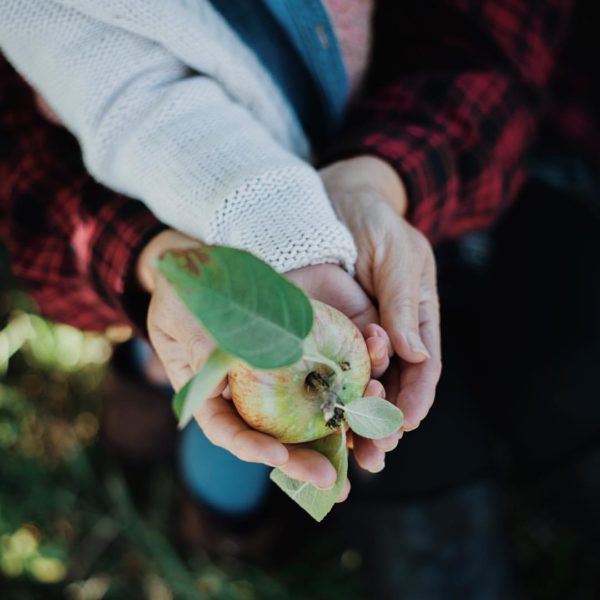
It’s the 21st century but somehow we’re still buying into the idea that the only women who have “worked hard for their bodies” are women who have toned, smooth, athletic, media-glorified physiques.
As if the rest of us are somehow slacking on the job. As if a gym membership or a marathon medal is the only pathway that counts as hard work. Don’t misunderstand me: active lifestyle goals are deserving of support and praise. I grumble each time I lift my tush off my comfy bed and encase it in spandex to run a couple of miles before the rest of the neighborhood starts to stir, but I feel proud of myself.
I get a lot out of my exercise: a sense of accomplishment, 45 minutes of alone time when my only responsibility is to myself, and a measure of personal success that stems from my increasing stamina and strength.
But you know what?
I’ve worked just as hard for the body I have in other ways, too.
Birthing
We’re moms. We all have our own individual journeys toward motherhood and for many of us, that includes birth stories that have left our bodies bruised, broken, and unrecognizable when we braved looks in the mirror. It’s overwhelming, isn’t it? First baby or fifth, we never quite feel prepared to greet our our naked, leaking, swollen postpartum selves.
When my first baby was born, I labored all night but needed an emergency c-section the next morning. I left the hospital a few days later with my husband and my newborn only to near-faint on my bathroom floor, my incision spilling droplets of bright red blood that bloomed all over the tile.
Back at the hospital after receiving a blood transfusion, the OB surgeon took a look at the staples holding the layers of my skin and muscle together. She determined that they had to come out and that my 10-inch long incision would have to heal on its own. With no pain medication, she began pulling out the staples while the nurse held both my hand and my wailing baby.
For six months afterward, my husband helped me practice advanced wound care; at first, I would lay on our bed while he packed my open and raw incision with layers of sterile gauze and bandages twice a day. Later, I did it on my own, often standing in the bathroom after a shower, one foot rocking the baby’s bouncy chair.
I shouldn’t have to say it, but I will: that was really hard work and I have earned every jagged, puckered, and raised crevice of my scar.
My body didn’t recover from trauma, it adapted to the trauma it endured. It changed into a different kind of strong and beautiful. I don’t have flat abs. I sport a drooping layer of skin over a scar. It will always be the part of my body I’ve worked the hardest for; it is a reminder of the fight I have inside me.
Indulgence
It is hard work saying yes in a world that values the restraint of no. Especially if you are a woman. No becomes your mantra: “I shouldn’t have another helping.” That has too many calories.” “I’ll pass on dessert.” We’re told via the world around us that there are only two options for us–be hungry and skinny (the desired) or be satiated and fat (the reviled). But, as usual, the right balance is different for every body.
I’m not willing to trade experiences for perfection. What I mean is this: I’m going to give myself permission to bake cookies with my daughters and eat them together because it’s an experience I value. I won’t remember that four chocolate chip cookies are “too many” calories. I will remember that we giggled in the kitchen and ate the fruits of our labor until we were satisfied.

Indulging ourselves in the act of living is not bad or wrong. If you are soft around the middle, be comforted in knowing that it’s because you did the hard work of saying yes. You said yes to sharing cotton candy with your children at the county fair. You said yes to a fancy meal out with your partner where you got to reconnect for the week. You said yes to an extra few glasses of wine when you made a new mom friend and the conversation just kept flowing.
There is beauty in saying yes, and there is beauty in your body that tells the tale of a life well-lived.
Rebellion
I stopped stepping on the scale about a year ago. At previous stages of my life, it was a constant companion. I liked the structure of it, the simplicity of weight and BMI as indicators of health, but I found myself growing weary of the ceremony of weighing myself regularly. Light fluctuations would put a cloud over my day. I recognized smaller numbers as “good” and larger numbers as “bad”. As if numbers are the markers of someone’s self-worth!
I will forever be grateful to my mid-thirties for the evolution of my relationship with my body. I don’t want to be skinnier, smaller, less than I already am. I want to be stronger. I want to take up more space. I want to wear a joyful smile in pictures and not care about the weight I “should have lost” and I want to eat my favorite bakery’s light-as-air croissants without berating myself for it.
My strength comes in many forms. It’s in the way I balance an armful of groceries in one arm while stretching the other to open the screen door around two kids and blocking the cat from escaping with my foot. It’s in the way I manage to tack on an extra mile to my run when I feel like slowing to a walk. It’s in the way I keep upright for a full day after being up with a sick child the night before.
It’s also in the way that I’ve changed how I talk about my weight or my appearance in front of my daughters. I am passing on the strength they need to combat the suffocating idea that their bodies exist to be judged for what they look like. I talk about how good I feel after talking a long walk, or put on a dance mix during the middle of the day so we can feel joy in the way our bodies move.
Because my daughters are already working hard for their own bodies–their capable living structures that house bones and blood and the shadows of scars to come. I want them to be ready for the difficult–but satisfying–work of loving themselves through all of their bodies’ evolutions.










